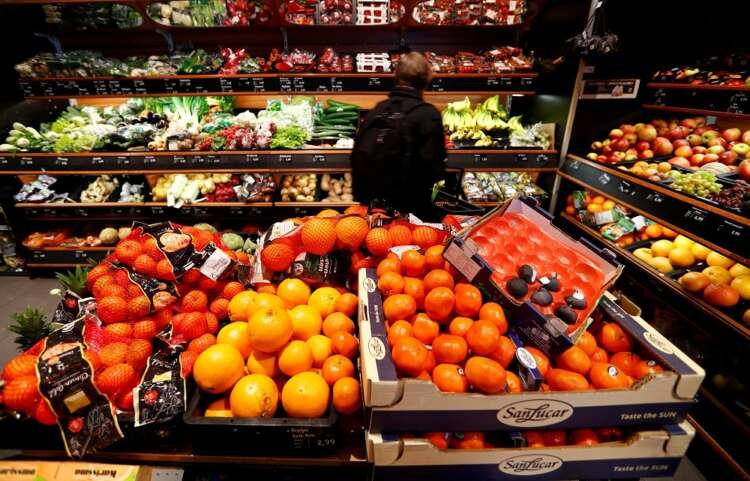Euro zone inflation to run hot, fan recession risk: Reuters poll


By Swathi Nair
BENGALURU (Reuters) – Recession risks in the euro area are rising, with euro zone inflation seen running hot for the remainder of 2022 and the European Central Bank likely to increase its deposit rate by year-end, a Reuters poll showed.
While inflation hit another record high of 7.5% in March, it is still months from a peak, as Russia’s war in Ukraine continues to push up food and energy prices, leading to speculation that higher price rises may become entrenched.
With the euro zone economy recovering, unemployment at a record low and nearly every other peer central bank now tightening policy, the ECB looks set to end its asset purchases this year and raise rates for the first time in well over a decade.
Of the 41 of 53 respondents in an April 1-6 poll who forecast the deposit rate to rise from a record low of -0.50% this year, 31 expect it to do so in the fourth quarter, with ten saying it will happen as soon as July-September, up from six in a poll last month. None expected a rate rise by mid-year.
However, the policy space is narrowing for the ECB, with a median 30% probability of a recession this year and the euro zone’s proximity to the Russia-Ukraine war leaving it the most vulnerable.
“There is a risk the economic impact of the war could be somewhat worse than expected, or that the situation could deteriorate further,” said Gordon Scott, euro area economist at RBC. “A recession thus remains a meaningful possibility, about 30-40% chance of at some point in the next year.”
Forecasters who in March expected the recovery to continue as businesses reopened following the Omicron variant wave have now downgraded their forecasts for economic growth to just 0.4% for this quarter, less than half of what was expected one month ago.
It was then forecast to pick up to 0.6% in the third and fourth quarter. The euro zone economy is expected to expand 2.9% this year and 2.3% next, down from 3.8% and 2.5% predicted a month ago.
Growth forecasts for 2022 in Germany, Europe’s largest economy, were nearly halved to 2.2% from 4.0% in the previous quarterly poll in January. Expected growth in France and Italy were downgraded to 3.2% and 2.8% from 3.7% and 4.2%, respectively.
All but two of 39 economists said further escalation in the war in Ukraine is the biggest risk to the euro zone economy over the next 12 months. The two said the biggest risk is a resurgence in COVID-19.
Forecasts for inflation this year have risen for the 10th consecutive survey — to 7.3%, 6.9% and 5.8% for the second, third and fourth quarters, respectively, from 5.3%, 4.5% and 3.3%, in the March poll, well above the ECB’s 2.0% target.
The three biggest economies of the bloc – Germany, France and Italy – saw a significant upgrade in annual inflation forecasts for this year.
Although ECB President Christine Lagarde has said the bloc faces no risk of stagflation – a sustained period of stagnant growth and high price rises – 21 of 38 economists, or 55%, saw a high or very high chance of it in the next two years. The remaining 17 said that risk was low.
About half of respondents, 18 of 39, said it is only a matter of time before wage growth, a key indicator of second-round inflationary effects follows. The others, 21, disagreed.
“A price-wage spiral can’t be ruled out …. Record high inflation could mean workers and unions with bargaining power will push harder for higher settlements,” said Simon Wells, chief European economist at HSBC.
“So far, though, demands have been fairly restrained – though the autumn will be a test with some big bellwether deals likely.”
Euro zone unemployment, which fell to a record low 6.8% in February, was expected to edge up only slightly and average 6.9% for this year and next.
(For other stories from the Reuters global long-term economic outlook polls package)
(Reporting by Swathi Nair; Polling by Anant Chandak and Shaloo Shrivastava; Editing by Bradley Perrett)
Explore more articles in the Top Stories category











